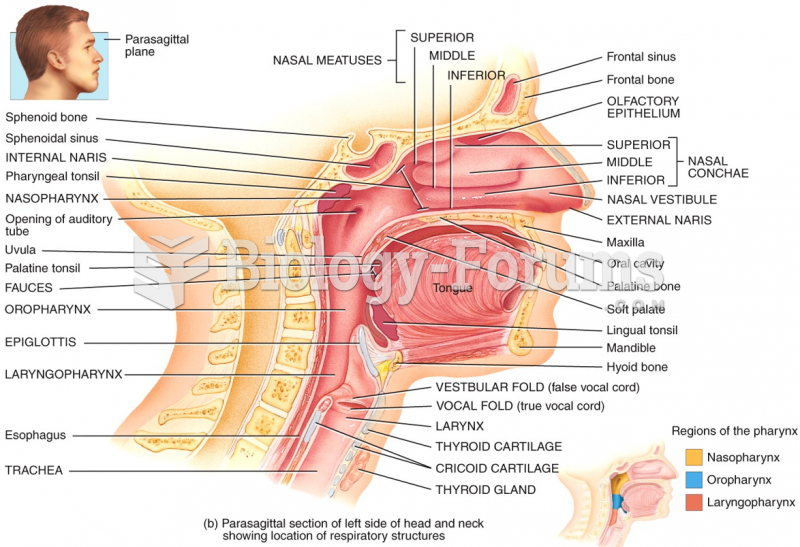Answer to Question 1
Correct Answer: 3
Rationale 1: Document the findings is incorrect because on discovering that a client is allergic to a product, it is the nurse's responsibility to first alert the charge nurse and patient's physician. Documentation is next as well as to apply labels to the chart and medication administration record to alert all healthcare personnel of the allergy. The client should be given an agency-approved allergy bracelet, and the pharmacist should also be told.
Rationale 2: Assess vital signs is incorrect because vital signs may or may not be assessed in this situation, and it would not be the next action of the nurse.
Rationale 3: On discovering that a client is allergic to a product, it is the nurse's responsibility to first alert the charge nurse and patient's physician.
Rationale 4: Monitor the client closely is incorrect because in this situation the client is stable; however, the client would be monitored after notifying the charge nurse, physician, pharmacist, and documenting information in the client's medical record.
Global Rationale: On discovering that a client is allergic to a product, it is the nurse's responsibility to first alert the charge nurse and patient's physician. Document the findings is incorrect because on discovering that a client is allergic to a product, it is the nurse's responsibility to first alert the charge nurse and patient's physician. Documentation is next as well as to apply labels to the chart and medication administration record to alert all healthcare personnel of the allergy. The client should be given an agency-approved allergy bracelet, and the pharmacist should also be told. Assess vital signs is incorrect because vital signs may or may not be assessed in this situation, and it would not be the next action of the nurse. Monitor the client closely is incorrect because in this situation the client is stable, however, the client would be monitored after notifying the charge nurse, physician, pharmacist and documenting information in the client's medical record.
Answer to Question 2
Correct Answer: 1, 2, 3, 5
Rationale 1: The nurse needs to understand the contraindications for this medication prior to administering to the client.
Rationale 2: The nurse needs to know which drug has been ordered for the client.
Rationale 3: The nurse needs to know the name (generic and trade) for the ordered medication.
Rationale 4: The manufacturer of the medication is incorrect because the active ingredients are the same for all generic medications.
Rationale 5: The nurse needs to know the drug classification for the ordered medication.
Global Rationale: Prior to administering a medication the nurse needs to determine the name of the medication (generic and trade), the drug classification, why it is ordered, and the contraindications. The manufacturer of the medication does not need to be determined prior to administration.







